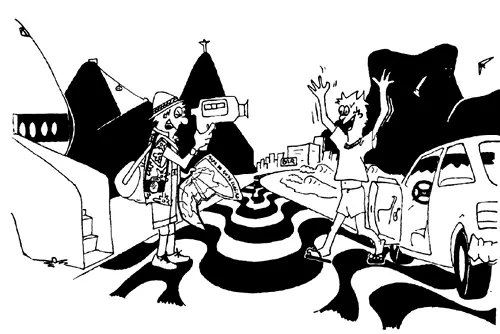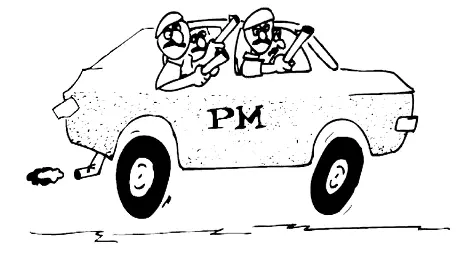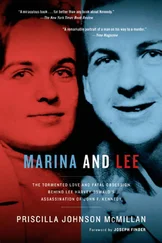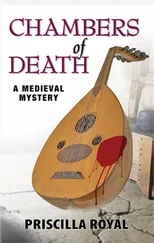Therefore, your first Step to becoming a successful Carioca is learning to recognize situations in which you, too, can use the jeitinho.For future reference, the following are just a few examples of when resorting to the jeitinhomight be appropriate:
• parking your car
• paying for a service
• looking for a rest room
• getting a job
• getting through lines
• dealing with the law
• resolving traffic problems
• taking a bus without any cash
• using a public pay phone
• getting a taxi at six p.m.


Lesson 4
Essential Vocabulary Words and Phrases
In order to best enjoy your stay in Rio, it is essential you understand the local dialect. Therefore, the most important Step on the road to becoming a true Carioca is developing familiarity with the following vocabulary words and phrases. Throughout the lessons in this book, upon finding non-English words in bold print,refer back to this chapter for their definitions. Then learn to use them with fluency.
By the way, the pronunciation is simple: where there is one «r» the sound will be «h» or «rr,» where there is a «te» say «tch,» and always ignore the «h.» Remember that many words have been spelled phonetically as a guide towards correct pronunciation.
A
Aí[ah ’ее]: Hey! (as in «A í, me vê uma caipirinha » «Hey, give me a caipirinha .») Term used at the beginning of ninety percent of the sentences spoken by a Carioca.
A gente se vê[ah ’gen tche see ’veh]: See you.
alugar[ah loo ’gah]: to «rent» someone by talking too much and boring them. (As in «Ela me alugou a noite toda.»: «She bored the pants off me all night.»)
alucinante[ah loo see ’nan tche]: cool, awesome, excellent.
amarelar[ah mah rreh ’lah]: to chicken out of doing something scary.
Aparece lá em casa[ah pah ’rreh see lah eyn ’kah zah]: Show up at my place. (A phrase used by Cariocas when terminating a social encounter. Note: This should never be interpreted as an imitation.)
apê[ah ’peh]: an apartment built for one that often accommodates six or more.
armar[ah ’mahrr]: to set up something (like a date or a trip).
В
babaca[bah ’bah kah]: a jerk.
badalada[’bah dah ’lah dah]: a place or thing that is happening.
baranga[bah ’rran gah]: a woman with an unappealing body.
barzinho[bah ’zee nyoo]: small bar where Cariocas belly-up for a cafezinho or a shot of cachaça. See boteco.
bodibodin[baw gee ’baw geen]: water sport consisting of catching a wave with a body-sized compressed rubber board.
boteco[booh ’teh koo]: Carioca fast-food joint. The same as a barzinho or botequim, but smaller, often having only two tiny metal tables next to the bar.
botequim[booh tchee ’keen]: Carioca’s favorite hang-out. Larger than a boteco, usually situated on a corner, and often having a few tables on the sidewalk.
bunda[’boon dah]: derriere. Watching women’s bundas is a popular Carioca year-around sport.
С
cachaça[kah ’shah sah]: Brazil’s answer to kerosene and alcohol. Made from sugar cane, it is the basic ingredient in the Carioca’s favorite drink. See caipirinha.
cadê[kah ’deh]: Where is…? (as in «Cadê meu livro?»: «Where is my book?»)
camburão[come boo’ rrown] or cambura: police vehicle made for four policemen and with room in the back for eventually arrested criminals. Usually seen with six cops riding with their machine guns out the window. The «cag e»( caçapa) on the back is made for two, but as many people as necessary can be shoved in.

caipirinha[kahee pee ’rreen nyah]: favorite Carioca drink; always followed by another. See cachaça.
camelô[kah meh ’loh]: street vendor.
caninha[kah ’neen nyah]: 1. police officer (cop); 2. the basic ingredient in the Carioca’s favorite drink. Same as cachaça.
cara[’kah rrah]: a guy or man (as in «Aí, cara»: «Hey, man»).
Caralho[kah ’rrah lyoo]: Holy cow!
cheques voadores[’sheh keesh voh ah ’doh rreesh]: checks that when deposited in the bank fly back due to lack of funds.
cerva[’seh vah]: bottled beer (short for cerveja).
chifrar[she ’frah]: to be unfaithful to your lover or spouse.
chinelos[she ’neh loos]: slippers, flip-flops, go-aheads.
chocante[show ’kun tche]: see alucinante.
chopp[’showp] or choppinho: draft beer.
Cidade Maravilhosa[see ’dah gee mah rrah vee ’lyoh zah]: Marvelous City; synonymous with Rio de Janeiro.
D
dançar[dun ’sah]: 1. to dance; 2. to get caught by the police doing something you are not supposed to.
dar um rolé[dah oon hoh ’leh]: go for a ride with no particular destination.
E
É mérino[eh ’meh moo]: Really? No kidding?
F
Falou [fah ’low]: All right, OK.
fio dental[’fee yoh den ’tahl]: 1. dental floss; 2. string bikini.
Fique numa boa[fee kee noo mah ’bow ah]: Stay cool.
flanelinha[flah neh ’lee nyah]: dubious looking individual who will insist on watching your car for you while you are parked. A source of great irritation for the Carioca.
G
galera[gah ’leh rah]: the group or crowd.
gata[’gah tah]: nice-looking woman.
gatinha[gah ’tchee nyah]: nice-looking girl (fifteen years old or less).
gatão[gah ’town]: nice-looking man.
gato[’gah too]: nice-looking guy (thirty years old or less).
Gaúcho[gah ’oo shoo]: local from the state of Rio Grande do Sul. Male gaúchostend to think of themselves as very macho.
grana[’grruh nuh]: money; cash.
guardador[guah dah ’doh]: see flanelinha.
H
Havaianas[ah vahe ’vah nush]: brand name synonymous with rubber sandals. See chinelos.
J
jeitinho[jay ’tchee nyoo]: the Brazilian knack of getting around anything.
К
kanga[’kun guh]: rectangular piece of material used by Carioca women as a bikini cover-up.
Читать дальше















